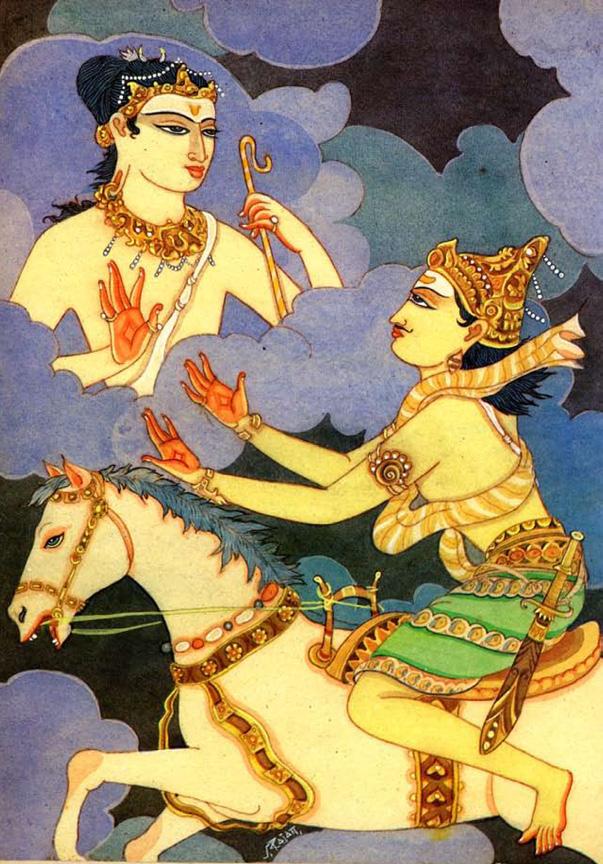Cheraman-perumal Nāyaṉār
Cheraman Perumal had great devotion for the Lord and already as a child, developed a high degree of detachment. When he came of age, he no longer wanted to be king but renounced the world in order to devote himself to the Lord. At his request a close friend assumed the throne in his stead but in time, the friend also grew weary of worldly life and he himself renounced. Ministers sought out Cheraman to persuade him to assume the throne once again. Though reluctant to interrupt his daily worship, Cheraman bowed to divine will and returned after receiving the Lord’s blessing.
One day seeing a launderer smeared with white sand and mud, Cheraman saw in the man the Lord Himself, smeared in sacred ash, and so dismounted his elephant and fell at the washerman’s feet, despite the latter’s protests. Cheraman’s enthusiastic devotion won him favour in the sight of the Lord who sent the following message: “Oh king who honours great poets and rules his subjects with love! Glory to you! I am very pleased with your devotion and charity.”
Meanwhile, the Lord bade Cheruman’s close companion, Sundara, to return to Kailas. The latter mounted a great white elephant and rode heavenward but not without remembering to visit his trusted friend. Upon seeing Sundara and hearing of his quest, Cheraman mounted his horse and whispered the panchākshāra into his ear, whereby the horse rose up and circled Sundara’s white elephant to ride ahead of Sundara toward Kailas. When Sundara was received by Lord Siva, he said: “Lord, Cheraman Perumal stands at the gate to attain Thy glorious feet!” The Lord graciously said: “So be it!” Cheraman entered and sang his ‘Thiru Ulā’. Pleased, the Lord spoke to Cheraman thus: ‘You and Ālāla Sundara will abide here as the twin commanders of the Hosts!” And so it was. That day Cheraman and Sundara entered the Lord’s service at Kailas.
Reproduced from the August 2012 issue of the Saranāgatī eNewsletter
published by Sri Ramanasramam. The above text has been freely adapted from editions
of Periapurāṇam, Siva Bhakta Vilāsam (published by Sri Ramanasramam) and other texts.

